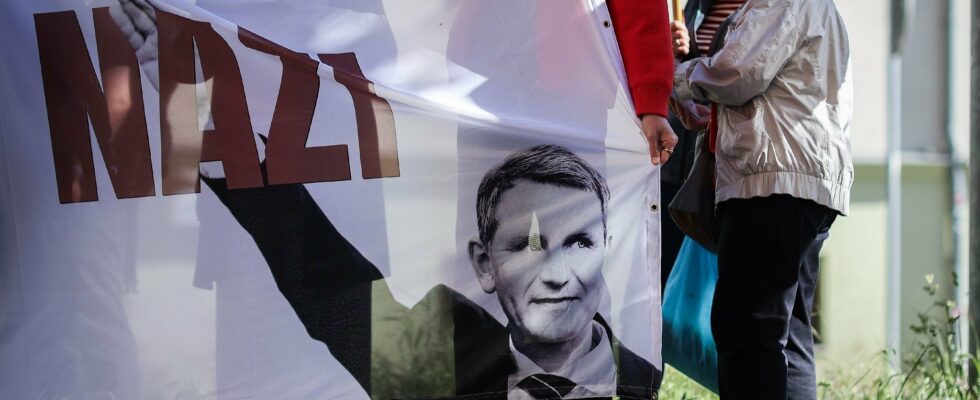Olaf Scholz is not the type to ignite crowds. Your monolithic, marmoreal face, it’s even rather… boring. This March 10, 2023, however, in front of an audience of journalists, the German Chancellor is cheerful. Soon, he announces, the country will experience a new “Wirtschaftswunder” (economic miracle). As during the golden decades (1950-1960). A year later, Germany is in recession and a rain of criticism falls on Scholz. No miracle, therefore, but the worst economic record since the Schröder years. Inflation, energy and housing crisis, demographics at half mast… The indicators are flashing red, even if Berlin, with little debt, maintains a financial margin of maneuver that many envy.
We still need to be able to act. “The three parties in power [NDLR : sociaux-démocrates, verts et libéraux] don’t agree on anything, criticizes a keen observer in Brussels. Everything is blocked and will remain so until the federal elections in 2025.” A boulevard for the extreme right (AfD), which could soon become the second largest party in the country. Is Germany sick? Unfortunately, this is our diagnosis and it is very bad news. Because faced with a bellicose Russia and at a time of a possible return of Trump, Europe, on the contrary, needs a strong Germany.
The far right is not yet in power in Germany but it is biding its time to implement its “deportations” plans, revealed last January by the investigative site Correctiv. “We are going to send foreigners back to their country. By the millions. It is not a secret plan, it is a promise,” assures René Springer, one of the spokespersons for the parliamentary group of the Alternative für Deutschland ( AfD) in the Federal Assembly.
No wonder that such declarations pushed 3 million Germans into the streets last January and that the Münster court confirmed, on May 14, a judgment authorizing the intelligence services to monitor this far-right party which “despises human dignity and democratic principles. “Judges subservient to the establishment”, immediately reacted Martin Reichardt, leader of the AfD in Saxony, where the party is still leading the polls (35% of voting intentions).
Since its creation in 2013 by university professors opposed to the euro, the AfD has continued to drift to the right to become an identity-based and, in some regions, fascist formation. Of the 18 founders, none remains. The last of the “moderates”, Jörg Meuthen, admitted after his ouster that he had made a serious error in maintaining Björn Höcke as president of the most radical federation (Thuringia). The identity wing ended up vampirizing the entire party. “I should have approved his exclusion when there was still time,” he regrets today. The AfD is much more radical in content than the National Rally or the Austrian far-right party. Faced with repeated controversial statements from its German partner, the RN also announced on May 21 that it will no longer sit with the AfD in the European Parliament.
Maximilian Krah, the head of the AfD list in the European elections, does not want to be compared to his European counterparts: “The shift towards the center of the Italian postfascists or the RN does not work”, he said. -he declared during his inauguration at the Magdeburg Congress in July 2023. But, after the arrest of one of his parliamentary assistants for spying for China, Krah was asked to stay away from the campaign so as not to weigh on the party’s image.
Reference to Hitler
For his part, Björn Höcke has just been fined 13,000 euros for using an SA slogan [NDLR : groupe paramilitaire nazi dissous en 1945] during a meeting. He embodies the fascist drift of this party now anchored throughout the territory. Nostalgic for the “great German Empire”, he calls for a 180-degree turn in memory policy, refuses to consider Hitler as “the incarnation of absolute evil” and advocates the “ethnic homogenization” of Europe. “Björn Höcke is a Nazi,” insists the general secretary of the Christian Democratic Union, Carsten Linnemann. And added: “No discussion is possible with the AfD, even over a beer.”
Whatever happens, it cannot be ruled out that this extremist will win the majority in the Thuringian elections on September 1st. Ironically, in 1930 this region was the first to be governed by the Nazis. Björn Höcke has also given himself a symbolic objective: to obtain at least 33% of the votes, a figure which refers to the year in which Adolf Hitler took power.
